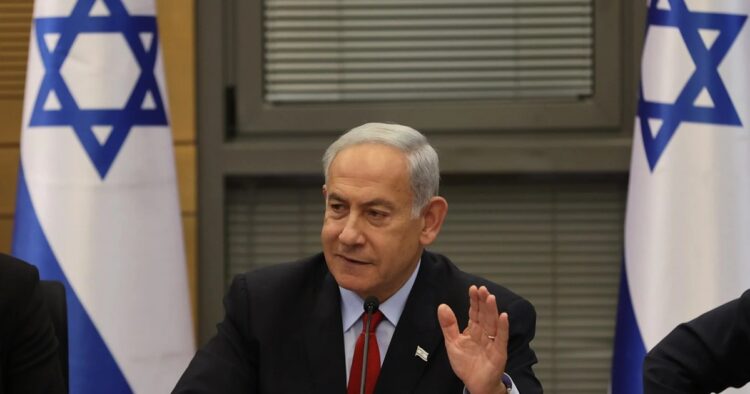Israeli Prime Minister Benjamin Netanyahu hinted at a potential delay in the planned military offensive in Gaza’s Rafah as ceasefire negotiations between Israel and Hamas continue. Speaking on Sunday, February 25, Netanyahu suggested that if a ceasefire deal spanning several weeks could be reached, the offensive might be postponed.
Netanyahu emphasized the strategic significance of Rafah, stating that its capture would signify a significant step towards achieving victory over Hamas. He outlined plans to extend the military campaign to Rafah, located at Gaza’s border with Egypt, despite concerns raised by humanitarian organizations about potential catastrophic consequences for the besieged population.
Confirmation of the ongoing ceasefire talks was reported by CBS, with discussions resuming in Qatar before moving to Cairo. These negotiations aim to address the release of hostages held in Gaza and Palestinian prisoners detained by Israel. Netanyahu is expected to convene a cabinet meeting to approve operational plans, including the evacuation of civilians from Rafah to safer areas within Gaza.
US National Security Adviser Jake Sullivan weighed in, stating that President Joe Biden had not been briefed on the Rafah plan. Sullivan stressed the importance of prioritizing civilian protection before proceeding with any military operation, according to NBC reports.
Mediation efforts in Egypt, with Qatar serving as a mediator between Israel and Hamas, have led to the drafting of a potential ceasefire agreement. The proposed deal involves the release of hostages and prisoners, with a six-week pause in fighting to allow for daily aid deliveries to Gaza. Negotiators face pressure due to the upcoming Muslim holy month of Ramadan, which begins around March 10.
However, Hamas asserted that it was not directly involved in the latest proposal but indicated that it aligns with their earlier demands for a truce’s initial phase. The group’s stance underscores the complexity of reaching a comprehensive agreement amid ongoing tensions in the region.

















Comments